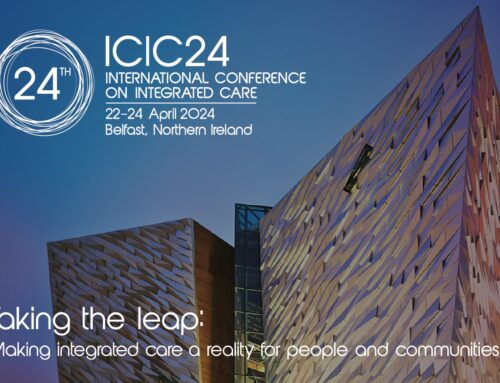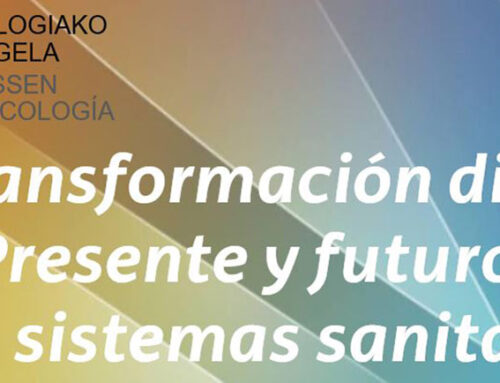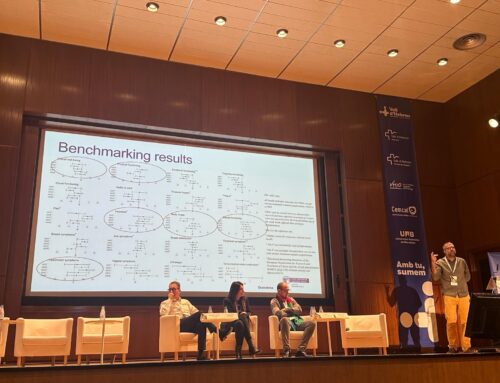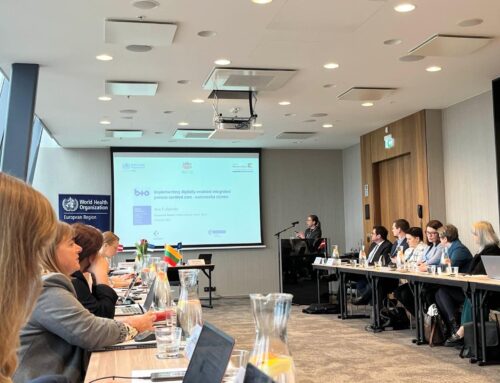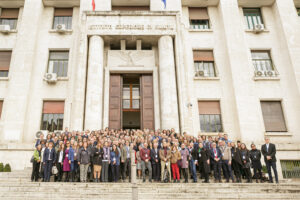 Biosistemak is one of the organisations participating in the new European Union Joint Action on Cardiovascular Diseases and Diabetes (JACARDI) which aims to reduce the impact of cardiovascular diseases and diabetes, and the associated risk factors, both at individual and population level.
Biosistemak is one of the organisations participating in the new European Union Joint Action on Cardiovascular Diseases and Diabetes (JACARDI) which aims to reduce the impact of cardiovascular diseases and diabetes, and the associated risk factors, both at individual and population level.
Officially launched on 1 November 2023, JACARDI will run for four years and will involve ministries of health, public health agencies, non-governmental organisations, universities and research institutes. The project launch meeting was held in Rome (Italy) from 27-29 November 2023, and was attended by more than 200 people.
This project aims to address cardiovascular diseases (CVD), which remain the leading cause of death in the EU, affecting 63 million people, and the prevalence of diabetes, which has increased dramatically in adults to 32.3 million in the last decade. These chronic diseases pose a major threat to people’s health and well-being while compromising health systems and hampering countries’ social and economic development.
An unprecedented coordinated European initiative
JACARDI emerges as a unified European response to the growing challenge of CVD and diabetes. The project will implement best practices for the treatment and management of these diseases in different European contexts through the execution of 142 pilot projects, supported by a common methodology for implementation and evaluation.
The project is coordinated by the Italian National Institute of Health (ISS) and has received co-financing of 53 million euros from the European Commission. The consortium is made up of 76 partners from 21 European countries, including Ukraine, and will involve more than 300 public health experts, including the Biosistemak research team representing the Basque Country with the collaboration of Osakidetza.
JACARDI will test and deliver solutions and tools for the management of CVD and diabetes, including prevention, early detection, treatment, care and self-management of the diseases to achieve the following objectives:
- Improve health literacy and raise awareness among the general population.
- Implement effective primary prevention measures, screening and improved care pathways among high-risk groups.
- Increase support for self-management and labour market participation of people diagnosed with CVD and diabetes.
- Boosting the availability, quality and accessibility of data throughout the patient journey.
- Promote equity in access to health services and information, ensuring that all people have equal opportunities, regardless of language proficiency, skills, age or status.
A commitment to a healthier future
This Joint Action is an important step forward in the fight against CVD and diabetes in Europe. Its approach prioritises tackling complex health challenges inclusively, including social and commercial determinants of health, cultural diversity and equity. The project will identify the key social dimensions of inequalities in CVD and diabetes.
JACARDI emphasises local and transnational cooperation, knowledge sharing and implementation, and supports sustainable practices for impactful results, including effective co-design between the scientific and policy arenas.
It also promotes gender equity in public health leadership, advocating for a collaborative and inclusive governance model that empowers younger generations and fosters healthier, more resilient and just communities for millions of Europeans.
The role of Euskadi
Biosistemak will have a relevant role in this initiative, helping in the coordination of the work package focused on health literacy, and also leading different tasks for the mapping and context analysis of the member states on health education and care pathways in CVD and diabetes. Furthermore, together with Osakidetza, it will be in charge of defining and implementing pilots in the Basque health system in two specific areas: health literacy and care pathways.
It is also worth mentioning the work that will be carried out in the definition of the methodological framework for the implementation of the pilots, and in the coordination of the scientific production of the project together with the IACS (Aragonese Institute of Health Sciences), through the definition of the plan and strategy of the publications and participation in scientific conferences within the framework of JACARDI. 


